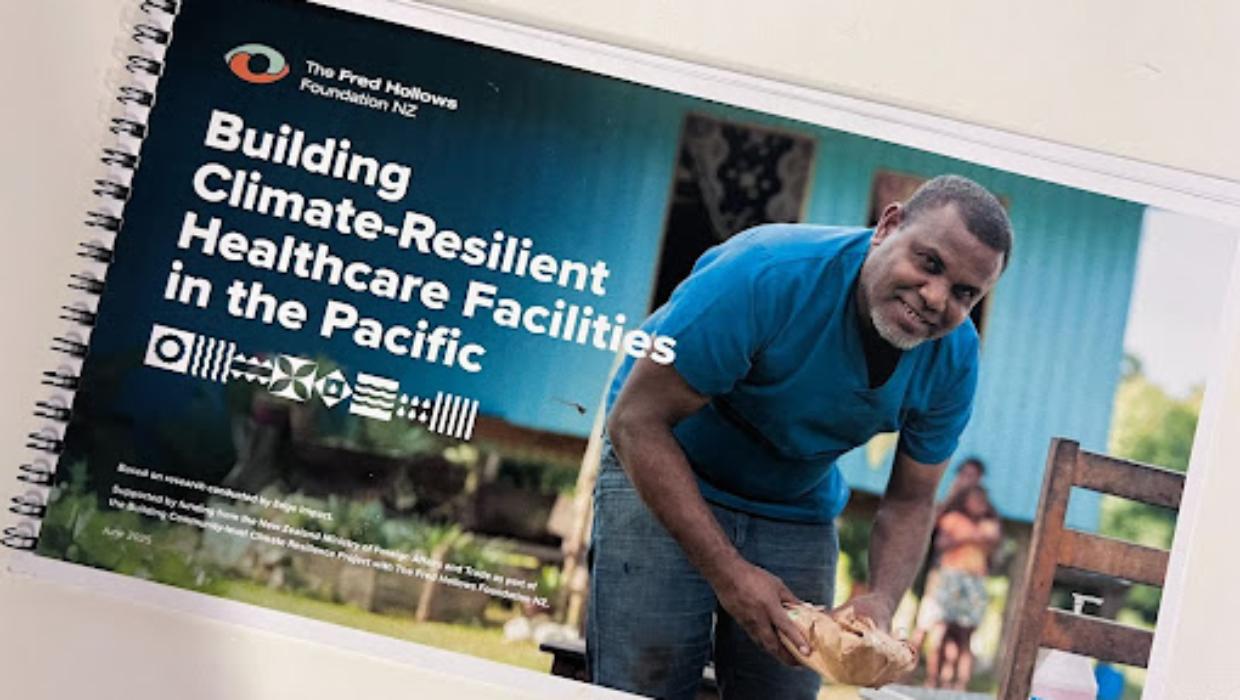Business
Pacific Healthcare Tackles Climate Challenges with Innovative Solutions

A recent report, funded by the Ministry of Foreign Affairs and Trade (MFAT), highlights how sustainable, well-designed healthcare facilities can significantly mitigate climate-related threats while improving patient outcomes. The findings emphasize that investing in environmentally friendly infrastructure not only helps save lives but also reduces healthcare costs in the long run.
The report draws attention to the increasing vulnerability of healthcare systems to climate change, particularly in regions like New Zealand. As extreme weather events become more frequent, the need for resilient healthcare facilities has never been more urgent. These facilities are designed to adapt to environmental changes, ensuring they remain operational during crises.
Innovative Design and Cost Efficiency
The research outlines specific examples of how innovative design can lead to both improved patient care and economic savings. For instance, facilities that incorporate renewable energy sources and efficient waste management systems are found to lower operational costs while minimizing their environmental impact. According to the report, transitioning to such sustainable practices could reduce healthcare costs by up to 30% over the next decade.
Furthermore, the report indicates that these improved facilities can lead to better health outcomes. Well-designed spaces can enhance patient comfort and recovery rates. By fostering a healing environment, healthcare providers can reduce the length of hospital stays and the incidence of complications.
Emerging Solutions and Future Directions
The findings advocate for a shift in policy and funding priorities to support the development of sustainable healthcare infrastructure. Stakeholders are encouraged to collaborate on innovative projects that address both climate resilience and healthcare delivery.
Several pilot projects are already underway, demonstrating the potential of these sustainable models. For example, a new facility in Auckland, which incorporates green building standards, aims to serve as a benchmark for future developments. This facility not only prioritizes energy efficiency but also focuses on creating a community-centric approach to healthcare.
As the global community grapples with the realities of climate change, the report serves as a call to action for healthcare systems worldwide. By prioritizing sustainable design, healthcare providers can contribute to climate resilience while ensuring the well-being of their communities.
The implications of this research extend beyond New Zealand, influencing healthcare policy and infrastructure planning in various regions. The integration of sustainable practices into healthcare systems may soon become a standard, promoting both health and environmental sustainability on a global scale.
-

 Sports2 months ago
Sports2 months agoNetball New Zealand Stands Down Dame Noeline Taurua for Series
-

 Entertainment2 months ago
Entertainment2 months agoTributes Pour In for Lachlan Rofe, Reality Star, Dead at 47
-

 Entertainment1 month ago
Entertainment1 month agoNew ‘Maverick’ Chaser Joins Beat the Chasers Season Finale
-

 Sports1 week ago
Sports1 week agoEli Katoa Rushed to Hospital After Sideline Incident During Match
-

 Sports2 months ago
Sports2 months agoSilver Ferns Legend Laura Langman Criticizes Team’s Attitude
-

 Politics1 month ago
Politics1 month agoNetball NZ Calls for Respect Amid Dame Taurua’s Standoff
-

 Entertainment2 months ago
Entertainment2 months agoKhloe Kardashian Embraces Innovative Stem Cell Therapy in Mexico
-

 Sports6 days ago
Sports6 days agoJamie Melham Triumphs Over Husband Ben in Melbourne Cup Victory
-

 World3 months ago
World3 months agoPolice Arrest Multiple Individuals During Funeral for Zain Taikato-Fox
-

 Sports3 months ago
Sports3 months agoGaël Monfils Set to Defend ASB Classic Title in January 2026
-

 Entertainment1 month ago
Entertainment1 month agoTyson Fury’s Daughter Venezuela Gets Engaged at Birthday Bash
-

 Sports1 month ago
Sports1 month agoHeather McMahan Steps Down as Ryder Cup Host After Controversy




















